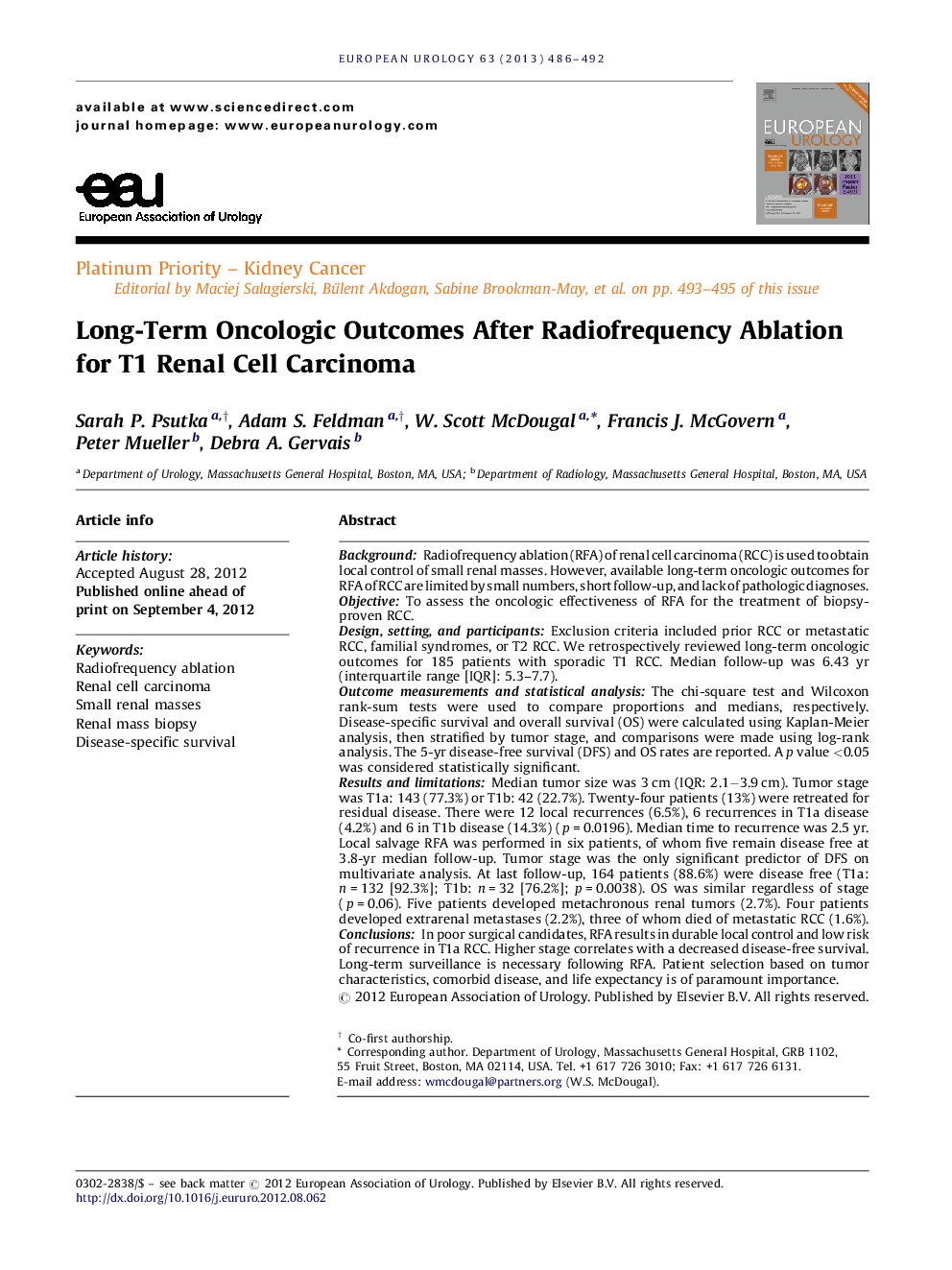| کد مقاله | کد نشریه | سال انتشار | مقاله انگلیسی | نسخه تمام متن |
|---|---|---|---|---|
| 3926139 | 1253143 | 2013 | 7 صفحه PDF | دانلود رایگان |

BackgroundRadiofrequency ablation (RFA) of renal cell carcinoma (RCC) is used to obtain local control of small renal masses. However, available long-term oncologic outcomes for RFA of RCC are limited by small numbers, short follow-up, and lack of pathologic diagnoses.ObjectiveTo assess the oncologic effectiveness of RFA for the treatment of biopsy-proven RCC.Design, setting, and participantsExclusion criteria included prior RCC or metastatic RCC, familial syndromes, or T2 RCC. We retrospectively reviewed long-term oncologic outcomes for 185 patients with sporadic T1 RCC. Median follow-up was 6.43 yr (interquartile range [IQR]: 5.3–7.7).Outcome measurements and statistical analysisThe chi-square test and Wilcoxon rank-sum tests were used to compare proportions and medians, respectively. Disease-specific survival and overall survival (OS) were calculated using Kaplan-Meier analysis, then stratified by tumor stage, and comparisons were made using log-rank analysis. The 5-yr disease-free survival (DFS) and OS rates are reported. A p value <0.05 was considered statistically significant.Results and limitationsMedian tumor size was 3 cm (IQR: 2.1−3.9 cm). Tumor stage was T1a: 143 (77.3%) or T1b: 42 (22.7%). Twenty-four patients (13%) were retreated for residual disease. There were 12 local recurrences (6.5%), 6 recurrences in T1a disease (4.2%) and 6 in T1b disease (14.3%) (p = 0.0196). Median time to recurrence was 2.5 yr. Local salvage RFA was performed in six patients, of whom five remain disease free at 3.8-yr median follow-up. Tumor stage was the only significant predictor of DFS on multivariate analysis. At last follow-up, 164 patients (88.6%) were disease free (T1a: n = 132 [92.3%]; T1b: n = 32 [76.2%]; p = 0.0038). OS was similar regardless of stage (p = 0.06). Five patients developed metachronous renal tumors (2.7%). Four patients developed extrarenal metastases (2.2%), three of whom died of metastatic RCC (1.6%).ConclusionsIn poor surgical candidates, RFA results in durable local control and low risk of recurrence in T1a RCC. Higher stage correlates with a decreased disease-free survival. Long-term surveillance is necessary following RFA. Patient selection based on tumor characteristics, comorbid disease, and life expectancy is of paramount importance.
Journal: European Urology - Volume 63, Issue 3, March 2013, Pages 486–492